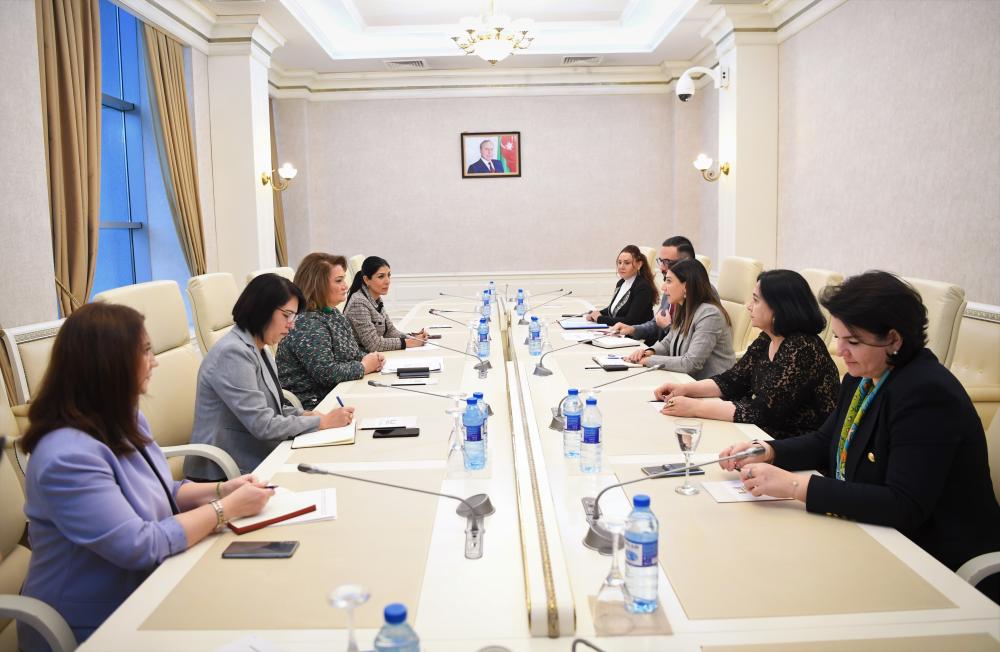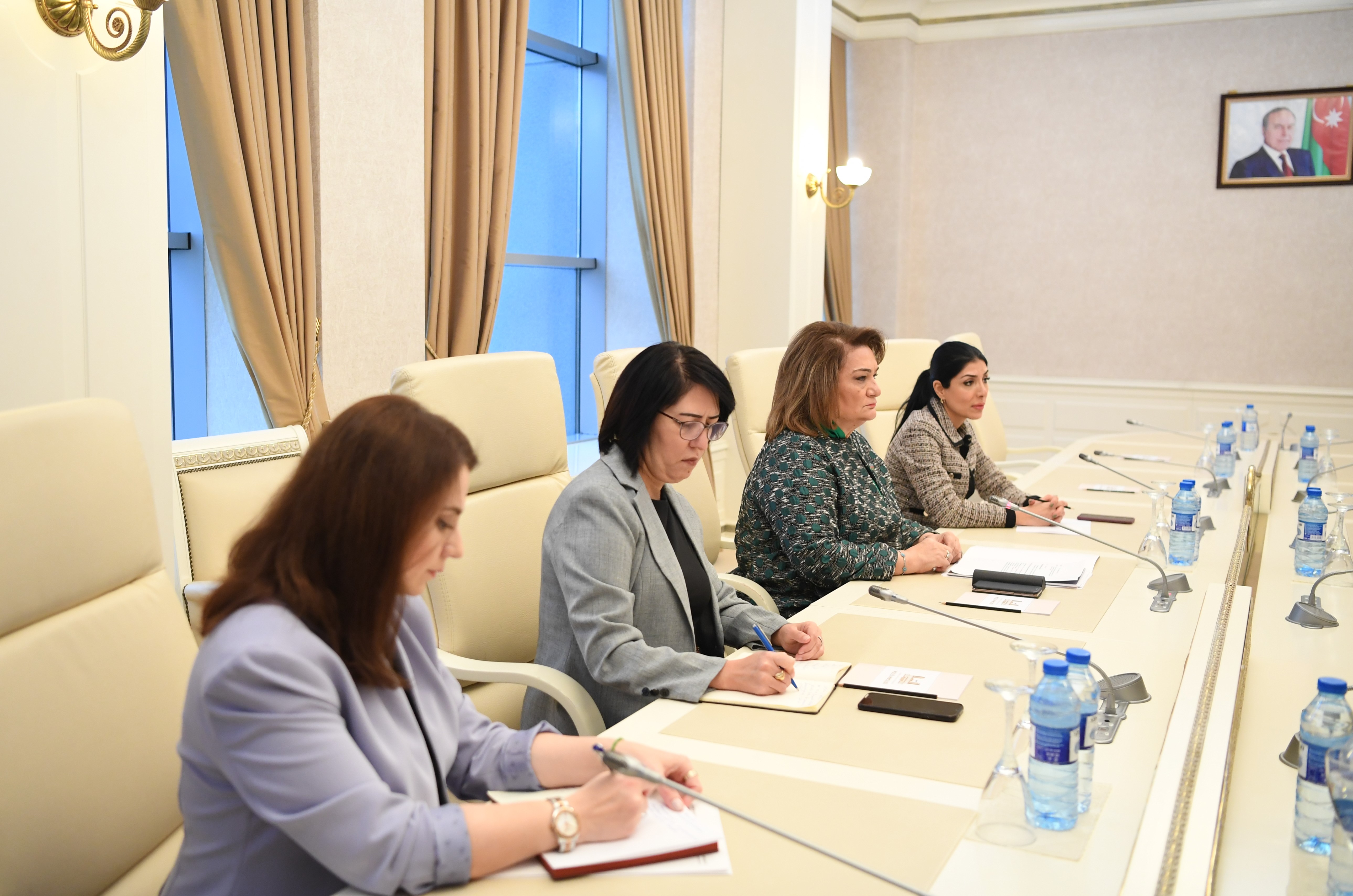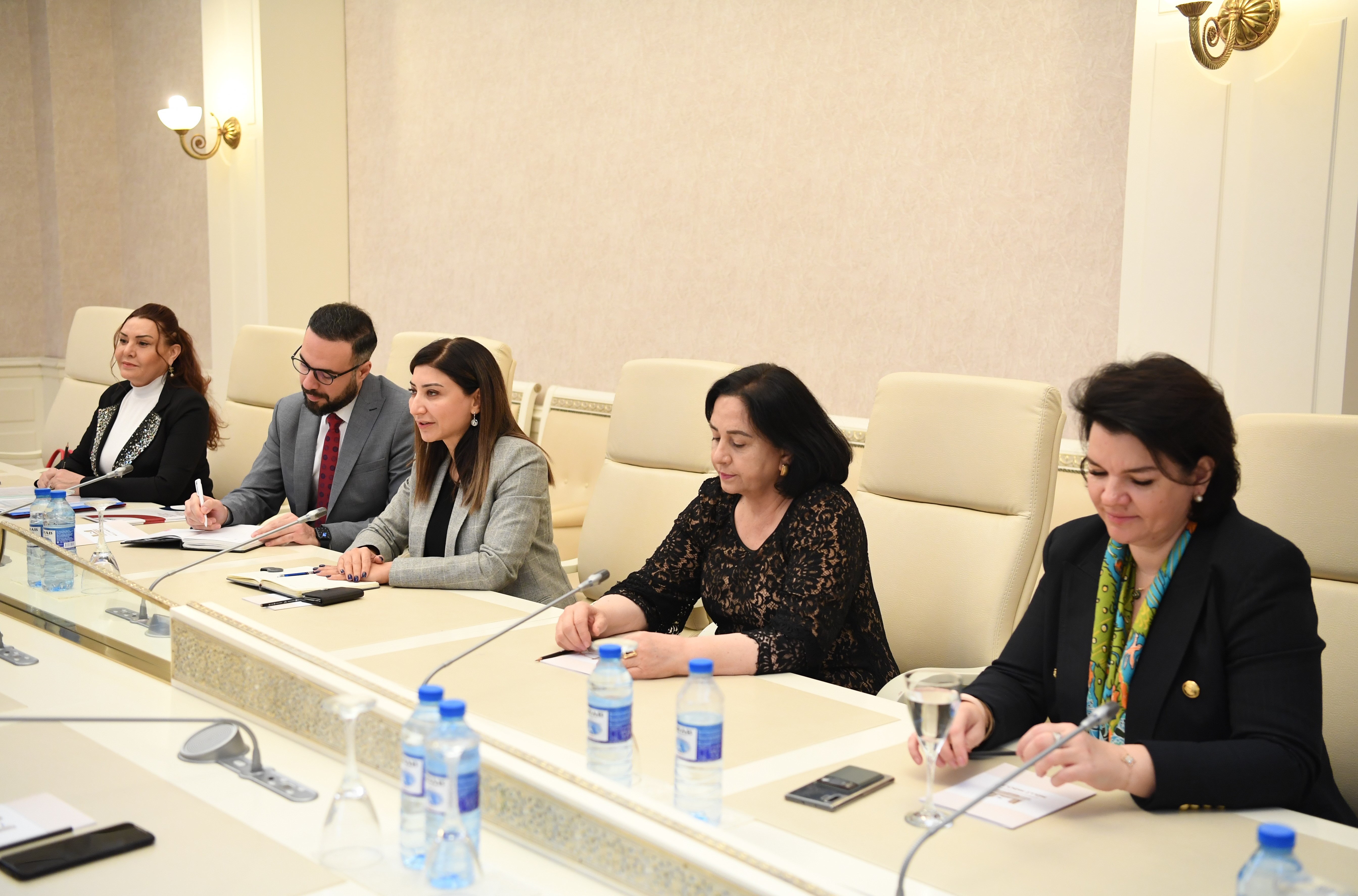A Meeting at Milli Majlis

Chair of the Azerbaijani parliamentary Family, Women’s and Children’s Issues Committee Hijran Huseynova had a meeting with representatives of the USAID Private Sector Activity initiative on 9 December in order to talk over how economic and social difficulties businesswomen encounter could be put out of the way within the frameworks of this project.
Hijran Huseynova told the visitors that enhancement of the social role of businesswomen was in the focus of the country’s leadership and that there were going to be certain legislative changes to give them broader opportunities. In the opinion of Mrs Huseynova, businesswomen ought to take part in enlightenment and mentoring programmes whereas the positive discrimination present in our society will be eliminated gradually through a combined effort of state and private entities.
Head of the ‘Women in Associations’ component of the USAID PSA Shalala Kamilova thanked for the meeting and said that the project was homing in on strengthening the associations of female enterprisers representing them in various industries and led by women, too, as its principal target. The stronger such organisations and associations, the more significant and useful their services will be, according to Mrs Kamilova. More than 20 women-orientated associations have been worked with for two years under the canopy of the project; the prioritisation of undertakings to boost women’s role in society has been accomplished as well.
The above-said component’s law and policy expert Rashid Mammadov tabled the project’s recommendatory document, drawn up in conjunction with the organisations named in the relevant list and presenting the results of the businesswomen’s polls and reporting done across the whole region, he said.
Chair of the Women’s Entrepreneurship Development Association in Azerbaijan Sakina Babayeva, in turn, said that the main hurdle was the gaps in value chains and that eliminating such a hurdle would require legislative amendments. Another matter is about the up-country HR potential. Most of the projects originating abroad are implemented locally by their own experts. That digitalisation is not advancing in the provinces necessitates aid concerning legal matters.
Chair of the Association of Rural Women of Azerbaijan Gulbaniz Ganbarova mentioned the need for support to accelerate the social integration of women farmers as the main driving force behind the economic progress of the provinces and, second, to organise networking among those women. The Association is only doing it at the provincial level whereas initiating network nationally will require certain help, according to Ms Ganbarova.
The founder of the Platform of Women Enterprisers of Azerbaijan Tatyana Mikayilova spoke about the significance of education and of preventing women’s evasion of it – especially, up in the provinces.
The Press and Public Relations Department
The Milli Majlis





